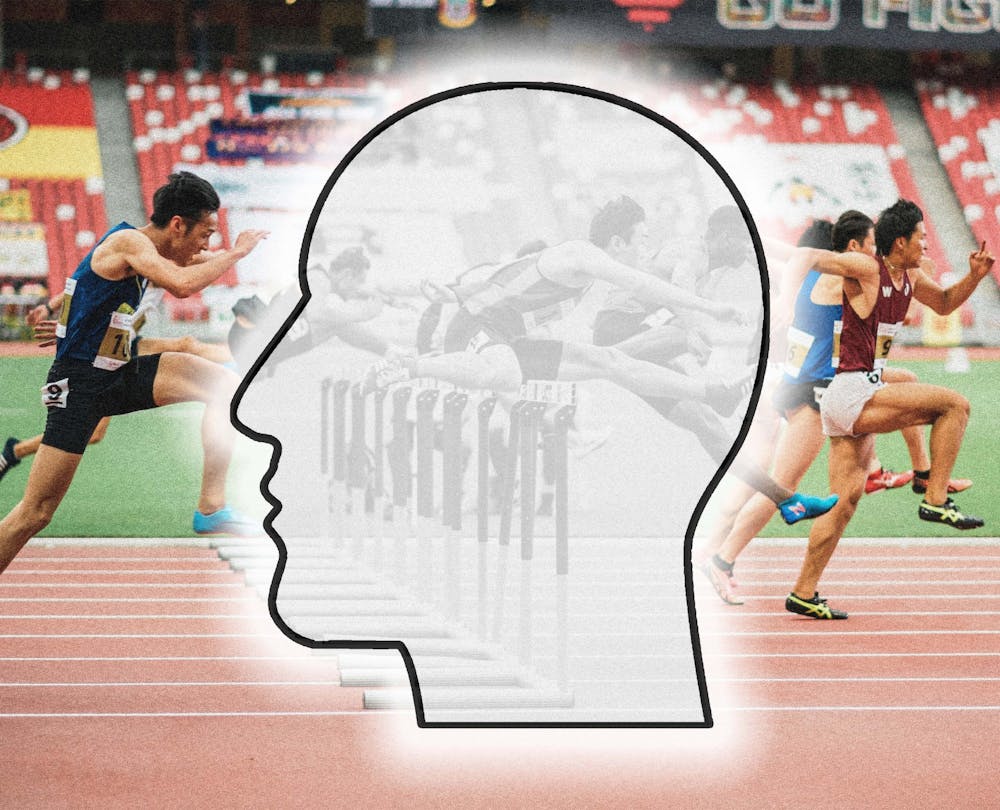American gymnast Simone Biles withdrew from multiple 2020 Summer Olympic events after citing problems with her mental health. Since Biles opened up about her decision to withdraw, many athletes around the world have shown their support for her and spoken out about the importance of mental health.
One of those athletes was Lauren Parker, a senior goalkeeper for the Miami women’s soccer team.
“If your mind isn’t in the game, then you aren’t going to perform at your best level,” Parker said, “I thought it was very eye-opening to see someone that is so successful be able to do that because people will think you can do anything when you are at that level.”
Biles withdrew because of a mental disorientation known among gymnasts as the “twisties,” which is defined as a mental block that causes a loss of sense of orientation while twisting in the air.
Sophomore synchronized skater Justine Ferrer related by saying, “There are some days when I simply can’t do something that I’ve been doing for ages.”
Having mental blocks while competing can cause a lot of distraction for athletes and even lead to an inability to perform up to one’s normal standards.
Mekhi Lairy, who has been playing basketball ‘since he was able to pick up the ball,’ is a senior guard for the RedHawks.
“I am one of those people who doesn’t really show emotion on the outside, and I hold everything in, which could be a distraction during competition,” Lairy said about the difficulties of mental blocks. “I’ve now learned how to not let anything negative come in between those 4 lines.”
Throughout the year, Miami athletes have to be full time students while also keeping in shape for their practices and competitions.
“I don’t think regular students understand the time commitment of being a full time student and having to perform the best that you possibly can as a student athlete,” Parker said. “I’ve had a hard time managing to be the best in both places.”
While some athletes find it stressful to do both, others find their sport helps with their stress.
“Soccer is a time to get my stress out, so it often helps me to relieve some stress from outside,” Women’s Soccer midfielder Tyler Klika said.
Enjoy what you're reading?
Signup for our newsletter
For the student athletes who are having a difficult time with their mental health during their season, Miami University offers a sports psychologist, Jim Slager.
Still, some athletes say this still isn’t good enough.
“I don’t think that I would say there’s enough [support],” Ferrer said. “It's a lot for one person to be in charge of sports psychology for an entire athletic department.”
While Miami has resources for its athletes on campus, some student athletes don’t take advantage of this support.
“You can give [people access to care], but that doesn’t mean people will take the help,” Parker said. “I think the reason mental health is so bad in student athletes is because they don’t want to feel weak.”
Many student athletes are advocating for mental health to be talked about more within the athletic community.
Ferrer is an ambassador for The Hidden Opponent, a non-profit organization dedicated to educating student athletes about mental health.
“As an ambassador for the organization, I do what I can to spread awareness around student athlete mental health,” Ferrer said, “I’ve met athletes from around the country who are just as passionate about breaking the stigma as I am.”
While interning for Sports Health Institute, Parker learned about the importance of mental health education for athletes.
“I think there needs to be more of an education,” Parker said, “because you can be looked at as weak for being upset or sad, and that’s not the case.”




